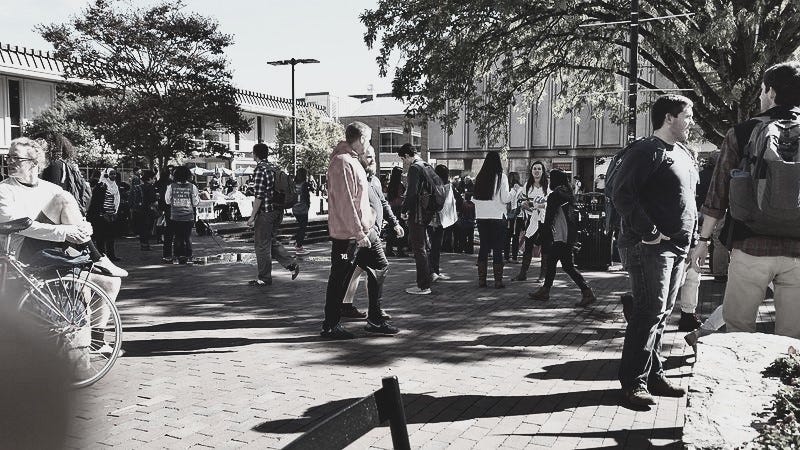The conservative Supreme Court is poised to rule on a case challenging race-conscious admissions, or Affirmative Action. The method has been utilized to achieve a goal of having a diversity of background and socioeconomic level within the larger learning environment. Public opinion is complicated on the issue with most Americans believing racism plays a role in cycles of poverty, but that government and policy designs should do less for afflicted individuals or communities. The ban of Affirmative Action in California saw a decrease in minority participation within selective public universities due to a decrease in consideration. The impact also reverberates to make it less likely minorities finish college or attempt a post-higher-ed degree.
As in the upcoming SCOTUS case, there can be the argument that racial discrimination is happening to one overrepresented group because of policies meant to increase the admissions of an underrepresented group. As is the case with the Thomas Jefferson High School for Science and Technology in Fairfax County, Virginia, where Asian Americans saw decreased admissions rates after a change in policy that was aimed at increasing the amount of Black and Latino students. This change included getting rid of standardized testing and instituting an admission policy that takes a set percentage of students from middle schools in four select Virginia counties. T.J. is a feeder school for Asian Americans in this region of the country, which is some of what accounts for higher Asian American representation. Just like with American public opinion, the policy’s impact is complex, and many are careful to consider the ways it can be misused (or malfunctions) outside of its original goal.
This doesn’t overlook the fact that there are a lot of people who believe, or wish, systemic racism never existed. There is also the issue of cultural and social segregation that exploits racial gaps. This can happen when universities seem to take in large numbers of Black and Latino students because they require an admission of ten percent of a particular region that is heavily one race or ethnicity. Yesterday, I wrote about the scars of segregation and how it mires our information highway and perceived realities, especially for the majority. This also happens in the way policies, like Affirmative Action, play out in actual reality within the greater landscape of the American melting pot.
This is generally a conservative critique.
However, the flaw has been in the enforcement of ideas. Much like with reproductive rights, conservatives will strike down a state-sponsored and publicly-fought-for remedy that is meant to alleviate a systemic inequality or injustice due to their fears of overreach, dysfunction, or reverse discrimination. But the conservatives will continue to support policies and attitudes that perpetuate inequality in other sectors of life and that make it much more difficult to create a culture of empathy. Though some say conservatives have a darker view of human nature and thus see government and populism as inevitable tools of our species’ worst desires, it is also sometimes forgotten that marginalized Americans push for adequate public spaces and initiatives to also address the darkest sides of humanity and how they will be perpetuated if left alone or overlooked.
It is just like the way we forget the Civil Rights Movement wasn’t that long ago and that only recently were the actors within it that movement given adequate light and remembrance. Conservatives of the late 20th century had blind spots, and the ill-advised goal of shredding policy achievements from a time when marginalized people were still living in the immediate outcomes of de jure segregation (and much more open racism) is a testament to this blind spot.
But on top of the evisceration of the policies, conservatives conveniently ignore the national climate fostered by Trumpism.
In contemporary America, the GOP has been in the grips of a deeply racist movement that has been reacting to growing multiculturalism through stereotypical assertions and intentional bad faith. The party can’t even show empathy towards the survivors of societal power imbalances because it would upset voters who are motivated by fear and subtle hatred for the historic other.
This MAGA GOP climate has been particularly demeaning, dismissive, and brutal to the history and contributions of Black Americans and other marginalized citizens. And yes, this is why people will call conservatives racist for further institutionalizing and intellectualizing the American Whitelash - even if its policy violence instead of physical violence (this time). Thus far, people have successfully perpetuated inequality and the continued excessive hoarding of resources to an almost destabilizing level. This will continue to happen, even when the policies are gone.
Also gone are intellectual and legal mementos from a time when America sought to be inclusive, educated, and productive. That is not America after the conservative movement took over.




